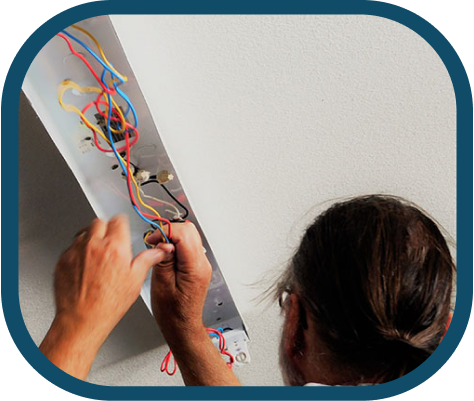Frequently Asked Questions
What are common signs that I need electrical repair in my home?
Signs include flickering lights, sparking outlets, buzzing sounds, burning smells, tripping circuit breakers, and loose switches or outlets.
Is it dangerous to ignore a circuit breaker that keeps tripping?
Yes, frequent tripping indicates a potential overload or wiring issue, which could lead to electrical fires or damage. A professional inspection is recommended.
Why is corroded wiring a safety hazard?
Corroded wiring increases resistance, which can cause overheating, sparking, or fire. It is essential to have it repaired or replaced promptly.
What should I do if I hear arcing sounds from my outlets?
Arcing sounds can indicate poor connections or damaged wiring. Turn off the circuit and contact a licensed electrician to inspect and repair the issue.
How can I tell if my power panel needs repairs?
Signs of a faulty power panel include unusual buzzing noises, a burning smell, frequent breaker trips, or visible rust and discoloration.
Is it safe to use high-powered devices like EV chargers on older wiring?
Older wiring may not support modern high-current devices, causing overheating or power loss. An inspection and possible upgrade are necessary for safety.
What causes outlets and switches to become loose or unresponsive?
Loose wiring, worn components, or improper installation can cause outlets and switches to fail. These issues should be repaired to avoid hazards.
Can water leaks damage my home’s electrical system?
Yes, water leaks can corrode wiring and connections, creating safety risks. If you’ve had a leak, an inspection is critical to prevent future issues.
Why do older homes often need electrical repairs?
Older homes may have outdated wiring, undersized panels, or ungrounded outlets that fail to meet modern safety standards and electrical demands.
How soon should I call an electrician if I see sparks or smell burning near an outlet?
Immediately! Sparking or burning smells indicate a serious hazard that requires immediate professional attention to avoid electrical fires.


